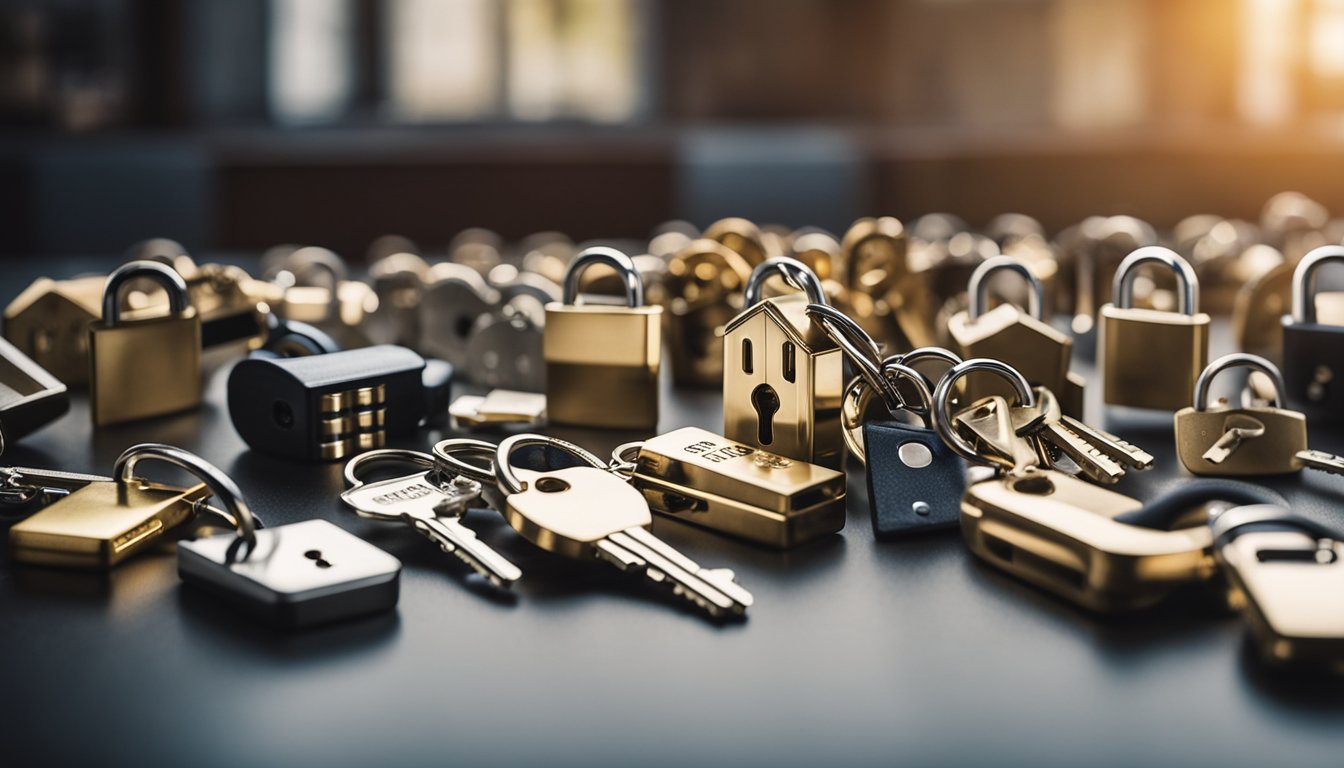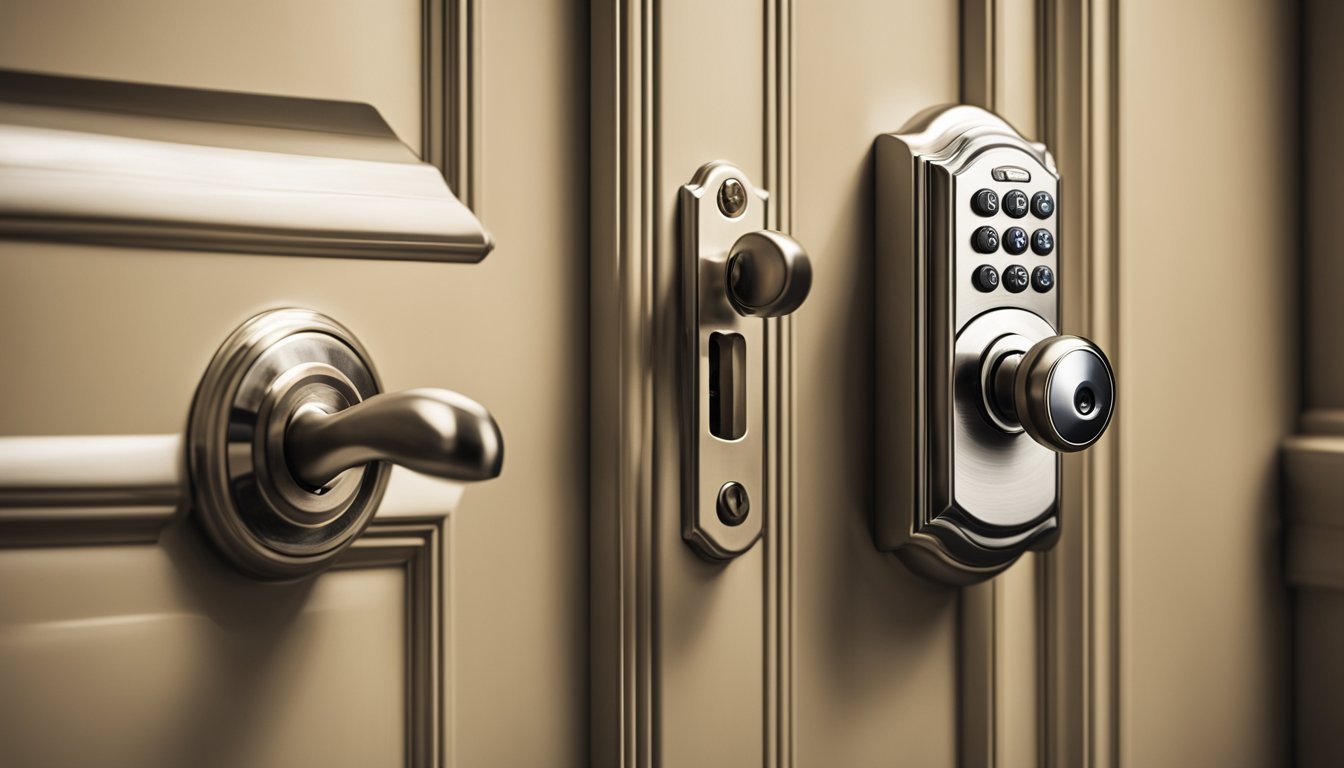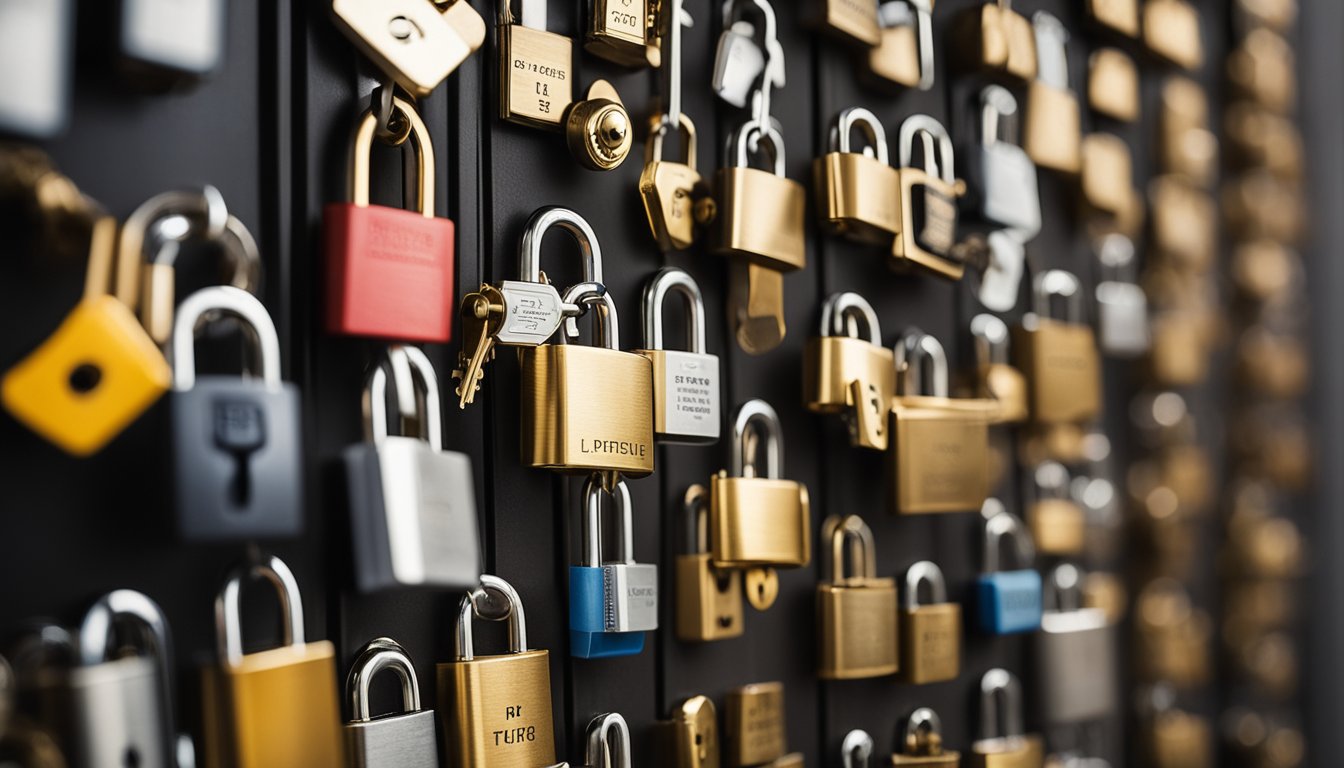Late updated: 27 Jun 2024 14:06
Written by: Elena Prescott
Top Tips For Choosing The Right Lock For Your Home: A Comprehensive Guide
Choosing the right lock for your home can feel like an overwhelming task, but it's a crucial step in ensuring your security and peace of mind. With various options available, from traditional deadbolts to advanced smart locks, we can help you make an informed decision that suits your specific needs. Identifying your home's security requirements and understanding the key features of different locks are essential actions to protect your property.

We all want the most reliable and durable locks to ensure our homes are as secure as possible. A quality lock provides not just safety but also aesthetic appeal and convenience. Considering factors such as the type of door, compatibility with your existing home security system, and ease of installation can significantly influence your choice. Balancing security, functionality, and style is the key to selecting the perfect lock.
It's important to match the lock type with the specific requirements of each door. For instance, front doors may necessitate robust deadbolts, while interior doors could suffice with simple knobs or lever locks. Evaluating these needs thoroughly will guide us in picking the most appropriate and effective locking mechanisms.
Key Takeaways
- Assess and identify your home's specific security needs
- Consider the balance of security, convenience, and style for each lock
- Match lock types to the requirements of different doors
Evaluating Your Security Needs
Choosing the right lock for your home starts with understanding your specific security needs. This involves assessing potential risks, identifying the most suitable locks for your door types, and knowing the different lock grades and standards.
Determining Risk and Security Level
We need to first evaluate the risk level associated with our location. If we live in a high-crime area, a higher level of security is essential. This means opting for high-security locks and possibly multiple locking mechanisms.
Analyse the crime rate in our neighbourhood. Use local crime data to understand prevalent threats and choose security solutions accordingly. It’s crucial to determine if exterior doors are the first line of defence or if there are additional entry points that need securing.
Type of Door and Suitable Locks
The type of door significantly impacts the kind of lock we should use. Front doors generally require robust locking mechanisms. For example, solid core doors offer better security than hollow core doors and should be paired with strong locks like deadbolts.
Different doors need different locks:
- Single doors: Usually paired with deadbolts or smart locks.
- Double doors: Require additional security like multi-point locking systems.
- Sliding doors: Utilise locks designed specifically for sliding mechanisms to prevent them from being pried open.
Understanding Lock Grades and Standards
We need to understand lock grades to choose the best security level. Locks are rated by the American National Standards Institute (ANSI) into three grades:
- Grade 1: Offers the highest level of security, ideal for front doors and areas requiring high-security locks.
- Grade 2: Provides a good balance between security and cost, suitable for internal doors and less critical external doors.
- Grade 3: Basic security, typically used for internal doors or areas with low-security needs.
Choosing the appropriate lock grade ensures our home is secured according to its specific requirements.
Selecting the Right Lock Features

When choosing the right lock for your home, it's essential to consider the type of lock, its materials, and any additional features that enhance convenience and security. Different locks offer varying levels of protection and functionality.
Mechanical Versus Smart Lock Options
Mechanical locks, such as deadbolts and mortise locks, remain popular due to their simplicity and proven reliability. They can be either single-cylinder or double-cylinder, depending on the security needs.
Smart locks, on the other hand, integrate advanced technology into your home security. These locks can connect to your smartphone through Bluetooth, Wi-Fi, or Z-Wave, allowing remote access. Brands like Schlage and Yale offer options with voice control and auto-unlock features. A smart lock can also work alongside your existing security system for enhanced protection.
Material, Strength, and Durability Considerations
The material and construction of a lock significantly impact its strength and resistance to forced entry. High-quality locks are typically made of materials like steel, brass, and zinc.
For example, deadbolts and mortise locks often feature anti-drill plates and reinforced strike plates to withstand tampering. Using strong materials ensures that the lock can endure forced entry attempts, providing better security.
Padlocks and combination locks should also be chosen with care, ensuring they are made from durable materials that offer longevity.
Extra Features for Enhanced Convenience and Security
Modern locks often come with features that add to both convenience and security. Fingerprint locks and keyless entry systems eliminate the need for physical keys, reducing the risk of lockouts and lost keys.
Some smart locks offer proximity-based auto-unlock, which unlocks the door as you approach, adding to the ease of use. Encrypted connections between the smart lock and the associated app ensure secure control over access, keeping intruders at bay.
For instance, the August Wi-Fi Smart Lock allows remote access and integrates with various smart home ecosystems, enhancing both convenience and security. It's vital to select a lock that matches your specific needs, balancing technology with reliable construction.
Frequently Asked Questions

Selecting the right lock for your home can significantly enhance your security. We address common questions to help you make an informed decision.
What factors should I consider when selecting a lock for my home?
Consider your security needs, the type of doors, ease of use, aesthetics, and budget. Additionally, evaluate the compatibility of the lock with any smart home systems you may have.
Which type of lock provides the highest level of security for residential properties?
Locks with ANSI Grade 1 certification offer the highest security. Deadbolts, particularly double-cylinder deadbolts, are also highly effective at securing front doors.
How do smart locks differ from traditional locks, and what are their advantages?
Smart locks often use Bluetooth, Z-Wave, or Wi-Fi to connect to your smartphone or smart home setup. They offer remote control capabilities, keyless entry, and integration with other smart home devices.
What are the most effective door locks to deter burglaries?
High-security deadbolts and smart locks are effective in deterring burglaries. Ensure the lock is robust and properly installed. Additionally, consider features like anti-pick pins and reinforced strike plates.
For renters, what is the ideal smart lock solution?
Renters should consider smart locks that are easy to install and remove. Look for models that fit over existing deadbolts or use temporary adhesive mounts. Features like keypad entry and remote access are also beneficial.
What features should I look for in a lock to secure an Airbnb property?
For Airbnb properties, choose locks with features like keypad entry, temporary access codes, and remote access. This will allow guests to check in and out easily while maintaining security. Integration with smart home systems can further enhance convenience and monitoring.
